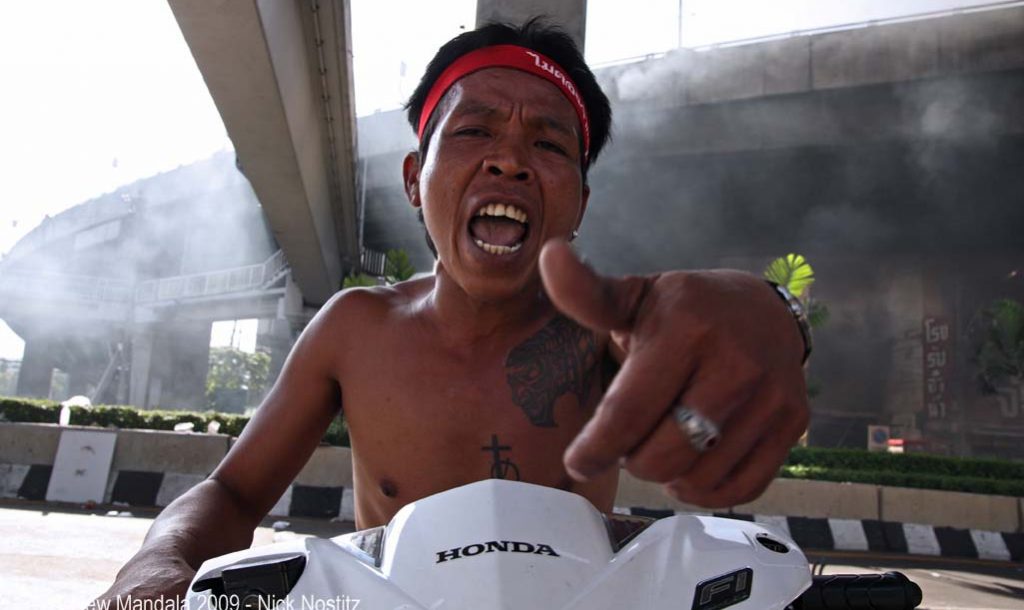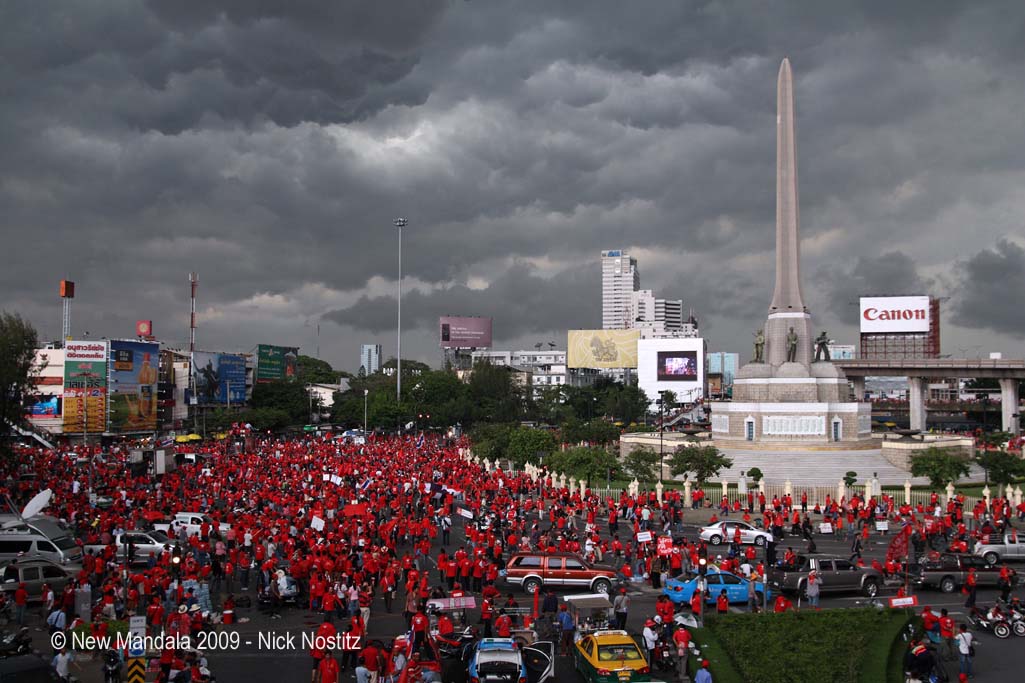In the recent New Mandala article “The People Rise Again?”, the author poses the following question in relation to the so-called ‘P-Move’: ‘Is this a resurgence of true people’s politics’. Later on, she clarifies what this may entail in her statement that ‘The real voices of the people at the bottom are not ones tied to a political party’.
These sentiments raise the question of why Thai elites, or those within its minority civil society sector, harbor such a desire for a ‘people’s politics’ disassociated from political interests. It is my contention that this virtual fetishization of a pure people’s politics, unsullied by entanglement with the muck and corruption of state and the political class, represents an unjust misunderstanding of the nature of contemporary politics and the claims of the poor.
In his book The Politics of the Governed, Indian political scientist Partha Chatterjee offers a powerful portrait of the kind of popular politics routinely deployed by those like P-Move inhabiting the lower rungs of the social ladder. Chatterjee’s great point is that for those operating in what he calls ‘political society’, the political imperative of the poor and disaffected is precisely that of forming associations or presenting as legible communities through which they attempt to engage the state in order to solicit state support. So much the better if one has on one’s side support from state members or those from the political class. Frequently these kinds of relations are developed on purely expedient grounds, with politicians taking up the cause of this or that group simply for calculated electoral purposes, or as part of the more routine practice of the need to provide some level of support and welfare to classes potentially problematic. This is a thoroughly pragmatic form of politics, in which strategic connections are sought with people of influence (politicians) in order to grant gravitas to a cause and to assist in achieving desired ends.
For Chatterjee, this kind of political dynamic, in which the poor enter into direct relations with the state and politicians in their quest to negotiate the transfer of resources (whether land, residency rights, water, health care etc) into local communities is considered a democratic and morally legitimate mode of subaltern politics. It is democratic in that people engage directly with power and use the various ‘weapons of the weak’ available to them to negotiate the allocation of resources denied to them due to their exclusion from the realm of civil society and formal economy. It is morally legitimate simply because livelihood needs are at stake.
But this kind of politics is rarely pure or clean. Frequently it involves violence or the threats thereof, bribes and petty corruption, favors and special interests, protests which prove inconvenient to civil society, and coalition arrangements with the corrupt and distasteful in order to add weight to the claims of the poor. This is all part and parcel of political society – an often untidy affair.
Political society appears to be on the nose for the Thai elite. Coalitions between politicians and the lower classes are dismissed as illegitimate. Politicians are thought to simply be using the poor for personal interests. But the concept of political society enables us to see that the poor may too be entering into calculated relations to pursue their own interests. In turn, it’s not unreasonable to consider this both democratic and legitimate, no matter how much it may depart from the values and democratic brand of politics advocated by civil society.
The Thai elite find it hard to accept this. Mirroring their demands for ‘good men’ at the national political level, so there appears to be an insistence for ‘good men’ and pure people’s politics at the grassroots level. Whilst they may indeed be found, one wonders why these values are projected onto the most vulnerable sectors of society, and whether this isn’t a form of subtle cultural imperialism. One wonders also, if this isn’t just another excuse used by Thai civil society to ignore the serious demands made by the poor, regardless of the state and history of the package they come in or how they are made.
Must the poor learn to keep the right company before they are granted a seat at the table?
Ryan Lane is a graduate student in the College of Asia and the Pacific, The Australian National University
 Facebook
Facebook  Twitter
Twitter  Soundcloud
Soundcloud  Youtube
Youtube  Rss
Rss 
